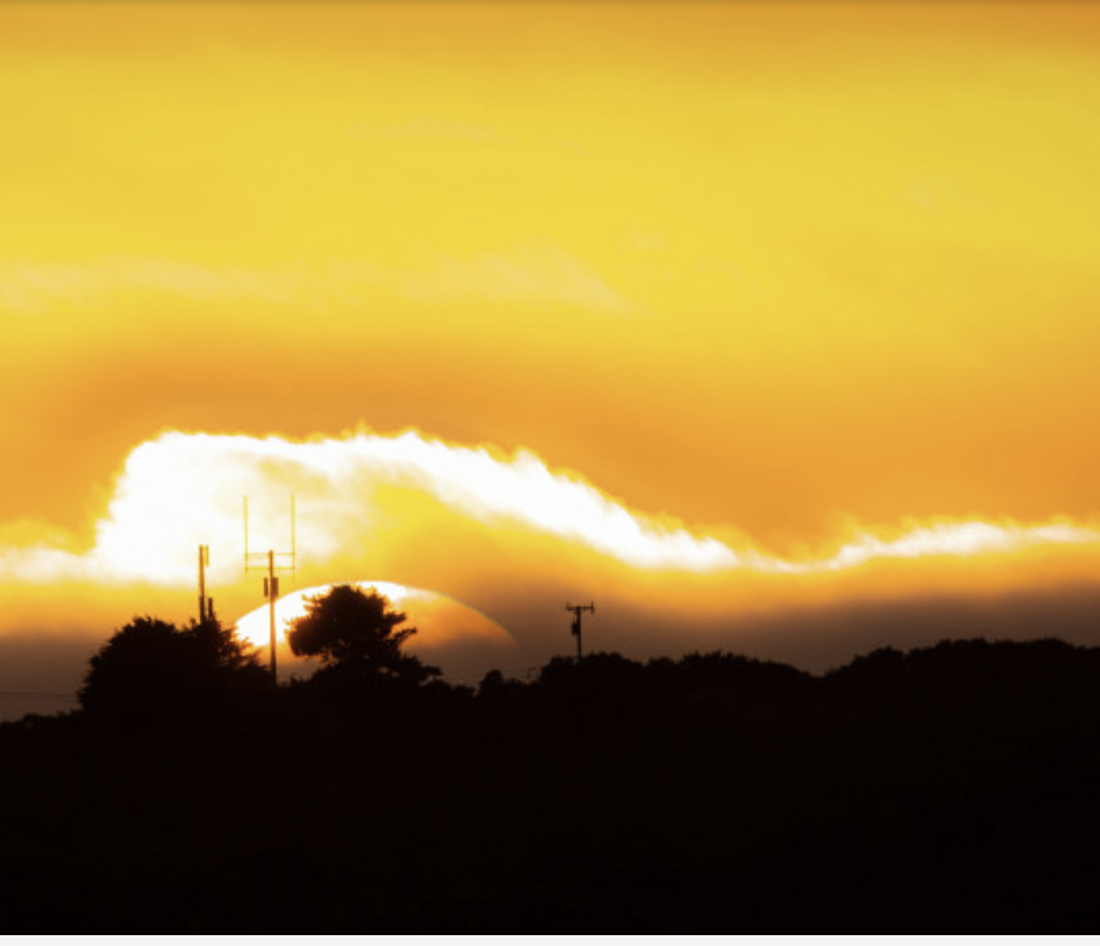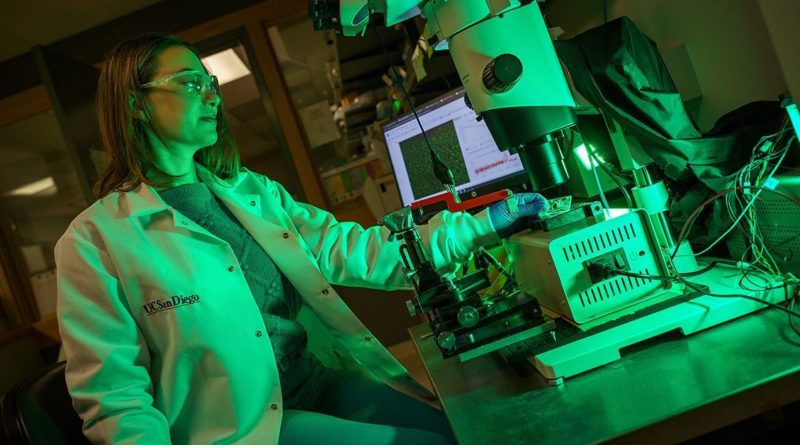Daily Business Report: June 21, 2024
U.S, News & World Report names
UC San Diego’s engineering and pharmacy
graduate programs among nation’s best
By Katherine Connor | UC San Diego
U.S. News & World Report has unveiled its 2024 Best Graduate Schools rankings in Engineering and in Pharmacy, spotlighting the UC San Diego Jacobs School of Engineeringand Skaggs School of Pharmacy and Pharmaceutical Sciences as among the top in the nation.
U.S. News ranked UC San Diego’s Jacobs School of Engineering 11th overall in the nation and seventh among public engineering schools in rankings released yesterday. In addition, the school’s computer science program ranked 13th in the nation.
The latest report named the university’s graduate education in pharmacy as No. 12 in the nation, marking the Skaggs School of Pharmacy and Pharmaceutical Sciences’ highest ranking since its founding in 2002.
U.S. News gave high marks to a variety of programs at the Jacobs School of Engineering, which offers master’s and doctoral degrees across its six engineering and computer science departments, along with many opportunities for specializations and focus areas. The Jacobs School of Engineering’s No. 11 ranking is up from No. 12 last year. Among public engineering schools, the Jacobs School of Engineering ranks as the No. 7 best engineering school in the nation, up from No. 8 last year.
Top Photo: Stephanie Fraley, professor in the Shu Chien – Gene Lay Department of Bioengineering, leads research into a new way to detect pathogens and sepsis faster and more accurately. (Credit: UC San Diego)
___________________________________
Could AI reject your resume?
California tries to prevent a new kind of discrimination
By Khari Johnson | CalMatters
California regulators are moving to restrict how employers can use artificial intelligence to screen workers and job applicants — warning that using AI to measure tone of voice, facial expressions and reaction times may run afoul of the law.
The draft regulations say that if companies use automated systems to limit or prioritize applicants based on pregnancy, national origin, religion or criminal history, that’s discrimination.
Members of the public have until July 18 to comment on the proposed rules. After that, regulators in the California Civil Rights Department may amend and will eventually approve them, subject to final review by an administrative law judge, capping off a process that began three years ago.
___________________________________
Study finds nitrous oxide emissions grew 40 percent
over 40 years, accelerating climate change

By Robert Monroe | Scripps Oceanography
Emissions of nitrous oxide – a greenhouse gas more potent than carbon dioxide or methane – continued unabated between 1980 and 2020, a year when more than 10 million metric tons were released into the atmosphere primarily through farming practices, according to a new report to which researchers from UC San Diego’s Scripps Institution of Oceanography contributed.
Agricultural production accounted for 74 percent of human-driven nitrous oxide emissions in the 2010s – attributed primarily to the use of chemical fertilizers and animal waste on croplands – according to the report “Global Nitrous Oxide Budget 1980-2020,” published June 12 in the journal Earth System Science Data.
At a time when greenhouse gas emissions must decline to reduce global warming, in 2020 and 2021 nitrous oxide flowed into the atmosphere at the fastest rates in history, the international team of researchers led by Boston College reported. On Earth, excess nitrogen contributes to soil, water, and air pollution. In the atmosphere, it depletes the ozone layer, and exacerbates climate change.
___________________________________
Google makes $1 million grant to
establish the San Diego Cyber Clinic
By Brian Hiro | Cal State San Marcos
Cal State San Marcos, together with the Cyber Center of Excellence (CCOE), National University and San Diego State University, has been selected to receive $1 million in grant funding and wraparound support from Google’s Cybersecurity Clinics Fund to establish the San Diego Cyber Clinic. The funding from Google.org, the company’s philanthropic arm, is part of a $25 million collaboration with the Consortium of Cybersecurity Clinics.
Cybersecurity clinics at higher education institutions provide free digital security services to under-resourced organizations, similar to how law or medical schools offer free community clinics. The new San Diego Cyber Clinic will give CSUSM, National University and SDSU students the opportunity to learn cybersecurity and AI skills in an effective, hands-on manner while simultaneously helping to protect vulnerable organizations and critical infrastructure, such as local small businesses, hospitals, schools and energy grids, from cyberattacks.
___________________________________
General Atomic scientists achieve key
requirement for economic fusion energy
A team led by scientists from General Atomics (GA) has demonstrated, for the first time, an operational approach that is key to many tokamak-based fusion power plant (FPP) designs aiming to generate economically attractive electricity.
The experiments at the DIII-D National Fusion Facility achieved a combination of high density and high confinement of the fuel that had never previously been achieved simultaneously. The results were published in an article in Nature in late April.
“This is a landmark result,” said Dr. Siye Ding, the GA scientist who led the team. “For the first time, we’ve been able to demonstrate a model operational scenario that could be employed by fusion power plants seeking to achieve economically viable electricity generation.”
The DIII-D National Fusion Facility is the largest research tokamak in the United States. It is operated by GA on behalf of the DOE’s Office of Science as a user facility for the U.S. fusion research program.
C-3 San Diego to present San Diego Power Plays breakfast dialogue
C-3 San Diego, a nonprofit citizens’ land planning organization founded in 1961, will present San Diego Power Plays, a panel discussion about the interplay bewteen renewable energy projects and the sensitive habitats of San Diego’s backcountry. The date is Thursday, June 27, from 7:30 a.m. to 9:30 a.m. at San Diego History Center, 1649 El Prado, Balboa Park. $25 for members, $35 for non-members.
The panel of experts will discuss the at-risk ecological systems against the backdrop of current federal, state, and local energy policy. They will unpack the precedent setting plans now in play, which may have unintended consequences for our region, state and nation. The panel will explore current threats as well as possible solutions and action.
Panelists: Michael Beck, president at Endangered Habitats Conservancy, the San Diego director of Endangered Habitats League and a former County of San Diego Planning Commissioner; Bri Fordem, executive director of the Anza Borrego Foundation; and Bill Powers, owner of Powers Engineering and leader of the Power San Diego initiative.
Holly Smit Kicklighter, a senior biologist with ICF, the founder of ASK Environmental and C-3’s Backcountry Knowledge Action Network chair, will serve as moderator.
Selina Haroon selected for Television
Academy Foundation internship program
Canyon Crest Academy alumna Selina Haroon has been selected for the prestigious Television Academy Foundation Internship Program. She is one of just 40 students chosen by Television Academy members from across the country for the 2024 Summer Internship Program. The Foundation offers paid internships at top Hollywood studios and production companies annually to college students nationwide. Haroon is a 2024 graduate of Loyola Marymount University who majored in English and minored in screenwriting. She will be an intern this summer in the unscripted television development department at Lighthearted Entertainment.
Crystal Pier closed after storm damage
Iconic Crystal Pier in Pacific Beach has been closed temporarily and the City has reallocated funds to perform storm-damage repairs.
“The city council recently approved the reallocation of funds to repair additionally identified storm damage to the Crystal Pier in Pacific Beach,” said Tyler Becker, City senior PIO. “Storm and high-surf damage earlier this year broke multiple piles and other structure elements in the public portion of the pier, which is the area to the west of the Crystal Pier Hotel cottages. This area has been closed for public safety since December 2023.”
City’s Stadium Wetland Mitigation
Project named Project of the Year
Recognizing a positive impact on restoring natural habitats to help improve the environment, the City of San Diego’s Stadium Wetland Mitigation Project has been named the 2024 Project of the Year by the San Diego/Imperial chapter of the American Public Works Association. The award was presented during a ceremony at the Hilton Mission Valley in San Diego.
The award promotes excellence in the management, administration and implementation of public works projects. The Stadium Wetland Mitigation Project transformed 57 acres in Mission Valley along the San Diego River into the City’s largest wetland mitigation site.
Eight years in the making and overseen by the Public Utilities Department, the Stadium Wetland Mitigation Project ensures the preservation of critical habitat that will benefit the San Diego community for generations.
Creekside Park in Civita also named Project of the Year
Creekside Park in Civita was named Project of the Year in the Parks Category in the annual San Diego/Imperial County APWA (American Public Works Association) Awards presentation. The 1.3-acre linear park extends from Friars Road to Civita Boulevard and is adjacent to the 14.3-acre Civita Park. Creekside Park includes elevated walkways spanning a cobble swale below, a children’s play area, seating, picnic areas and an off-leash dog run.
Creekside Park also features landscaped detention basins that mimic the character of a natural creek. These basins are part of the community’s extensive biofiltration system, which treats and cleans runoff before it flows into the San Diego River.
Haus of Serotonin pop-up at Spill the Beans
Spill the Beans, coffee and bagel shop beloved by locals and tourists alike, has welcomed a pop-up with permanent jewelry brand Haus of Serotonin. From 8 a.m. to 3 p.m. on Sunday, June 30, Spill the Beans (525 Camino De La Reina) customers can enjoy $10 off at the “Serotonin Salon.”
Stop in with besties, loved ones, and family for an unforgettable bonding experience paired with delicious, handcrafted lattes and specialty beverages, unique bagel and cream cheese pairings, and enormous bagel sandos.
Raising Capital from the Crowd
How Small Businesses Can Raise Capital from the Crowd is topic for a free virtual event on Thursday, July 11, at 10 a.m. The presenter is author and journalist Devin Thorpe, who has over 25 years of experience in finance and a rich background as a former CFO and founder of an investment banking firm. Register here.
Port of San Diego releases fifth
edition of its Blue Economy
Incubator Highlights Report
The Port of San Diego has released the fifth edition of its Blue Economy Incubator (BEI) Highlights Report, which features the program’s impact in numbers, a growing list of worldwide partnerships, local, national and international media coverage including a Ted Talk featuring BEI Program Director Paula Sylvia, and more.
As a catalyst for the region’s Blue Economy, the Port established its Blue Economy Incubator in 2016 as a launch pad for sustainable aquaculture and Port-related blue technology ventures. In the eight years since the Port launched the Blue Economy Incubator, it remains the only such program based at and operated by a port.





